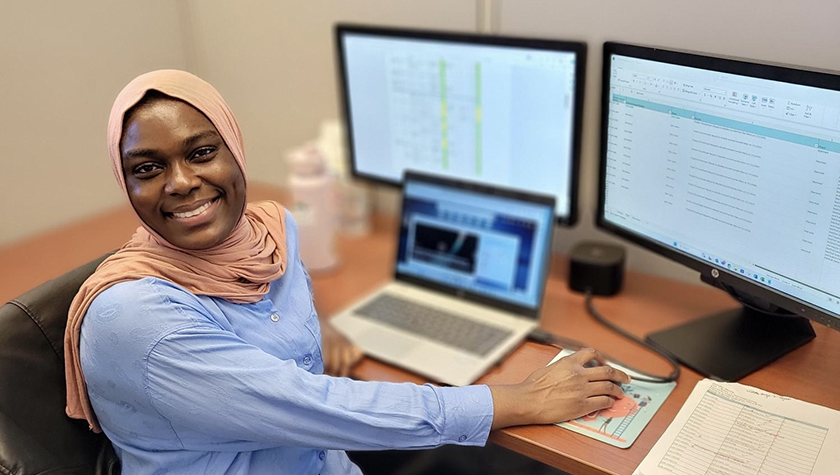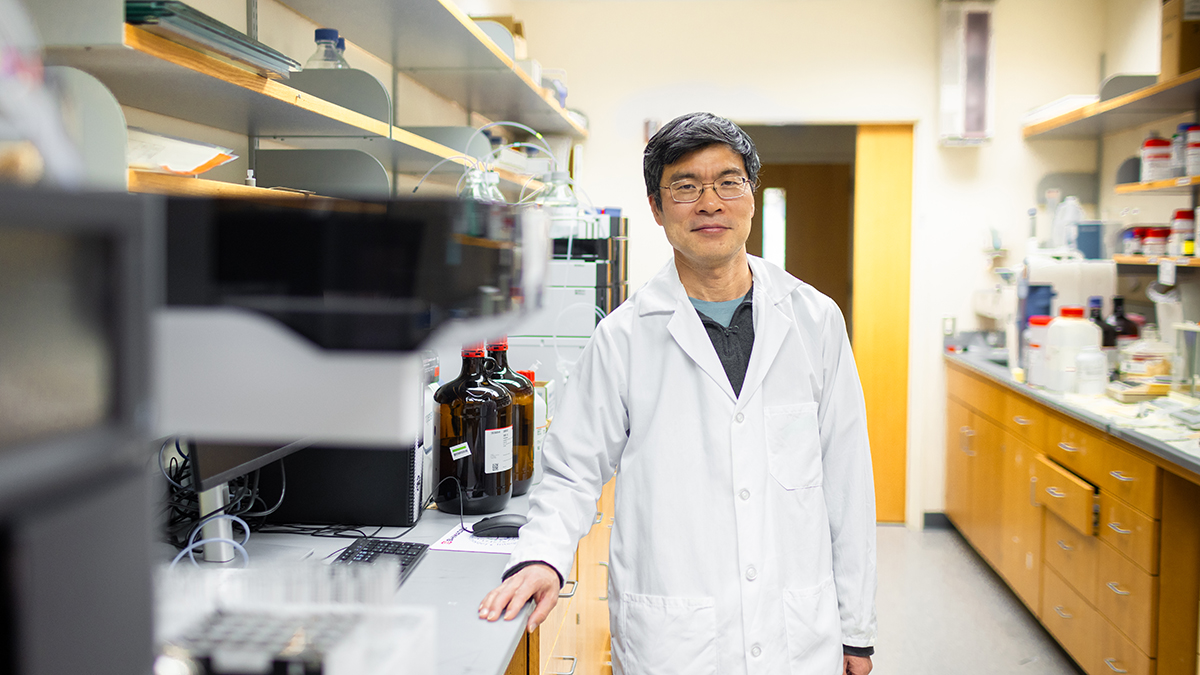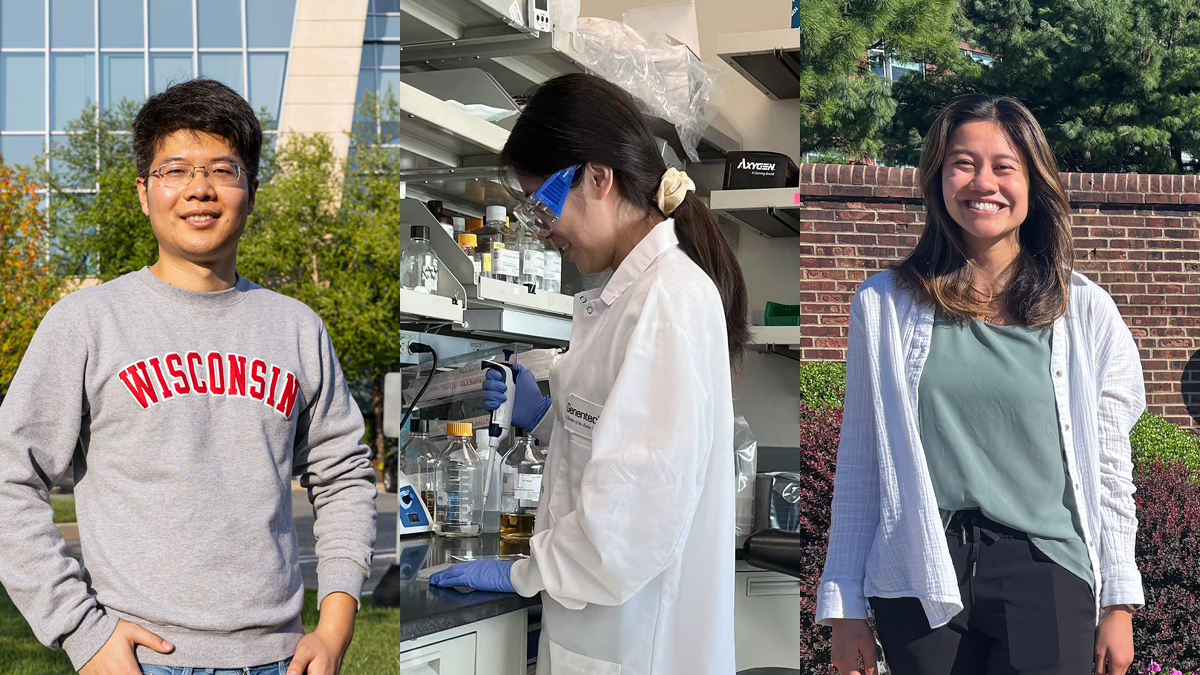
Pharmaceutical Sciences graduate students gain invaluable experience through internships and co-ops from coast to coast
By Nicole Sweeney Etter
Tina Dang was midway through her Pharmaceutical Sciences doctoral program at the University of Wisconsin–Madison School of Pharmacy when she felt the itch to mix up her routine. She also wondered whether she should pursue industry or academia after graduation.
So when Dang spotted a LinkedIn post advertising summer internships at Merck’s headquarters in Rahway, New Jersey, she jumped at the opportunity. After a competitive application process, she spent this past summer on Merck’s analytical enabling capabilities team, working to advance safe and effective biologic therapies for serious and chronic conditions through mass spectrometry.
Dang — who felt instantly welcomed by UW alumni and others at Merck — was impressed by the company’s collaborative, supportive culture.
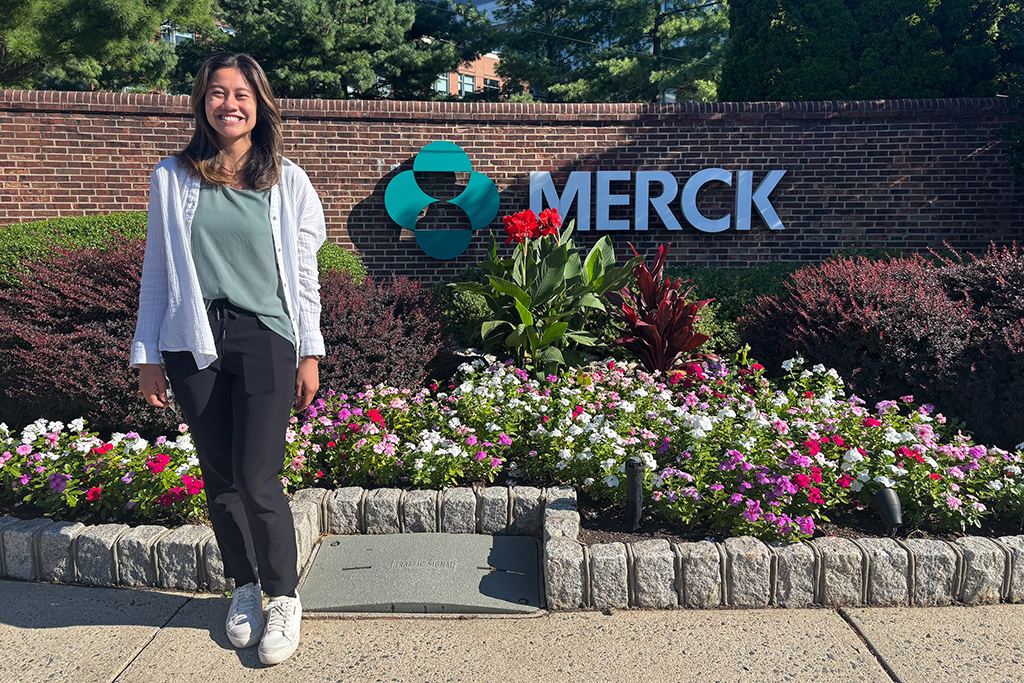
“The experience has been incredible,” she says. “Honestly, it has exceeded all my expectations.”
Each year, a handful of students in the Pharmaceutical Sciences graduate program opt to do an internship or co-op, which are longer-term learning experiences, at companies ranging from the biggest names in pharma, such as Merck and AbbVie, to smaller organizations like the Usona Institute, which researches psychedelic therapies at its headquarters just outside of Madison.
“It’s a great opportunity and also potentially a foot in the door if students want to apply for a job there later,” says Lara Collier, associate professor of pharmaceutical sciences and director of the Pharmaceutical Sciences PhD program. “It gives students practical experience in industry and can show them how working in industry can differ from an academic thesis project. You’re supervised by your thesis advisor in graduate school, but that relationship might look very different from a more traditional employment situation. It also extends students’ research skills and some of their soft skills of working with different groups of people.”
Preparing for the working world
Last year, the School of Pharmacy’s Pharmaceutical Sciences PhD program hosted a panel with past internship and co-op participants. The panelists shared insights on everything from interview tips to how to negotiate a job offer to the logistics of leaving an apartment for a few months.
“That was really helpful because it helped prepare current students for the logistical challenges and how they can be overcome and mitigated,” Collier says. “And every student who had participated in an internship or co-op said it was an absolutely great experience that they would do again.”
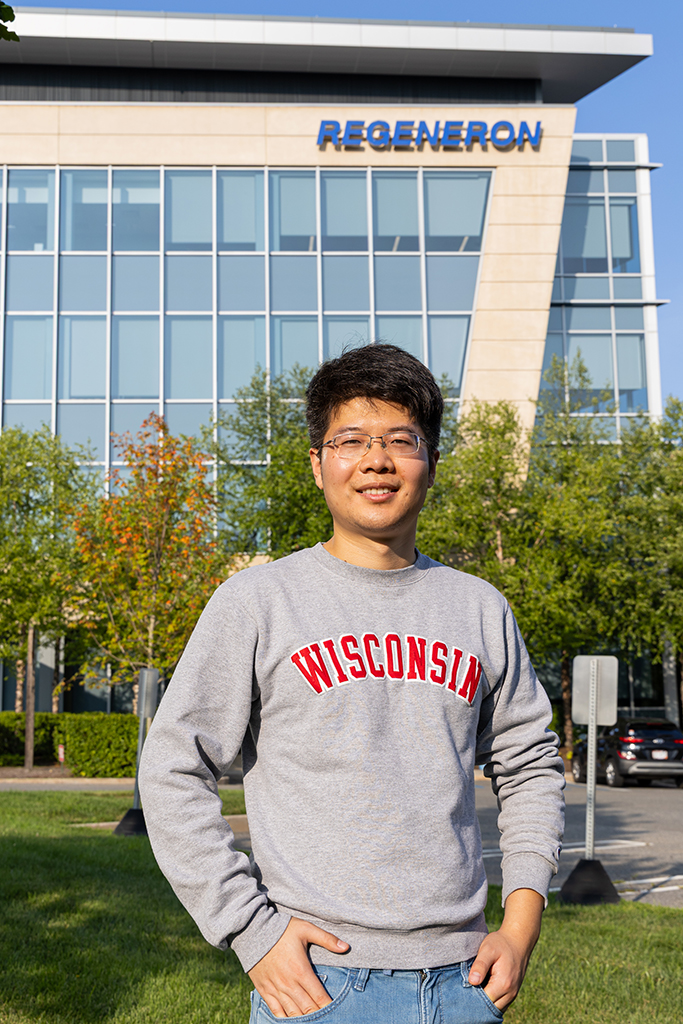
The panel discussion convinced PhD candidate Gaoyuan Lu to apply for summer internship and longer co-op possibilities. Now he is finishing up a six-month co-op experience at Regeneron in Tarrytown, New York.
“The School of Pharmacy was incredibly helpful,” Lu says. “First, it has very strong ties to the pharmaceutical industry, which puts our students on the radar for these kinds of opportunities. We also have an amazing alumni network — there are a few alumni who have worked at Regeneron or still do, and I was pretty lucky to get the referral from them to help me secure this position.”
Lu’s experience through the doctoral program prepared him well for his co-op with Regeneron’s analytical chemistry team, where he uses high-resolution mass spectrometry to characterize complex biomolecules such as peptides and proteins, which can help with biomarker discovery and drug quality control.
“This co-op has been a perfect bridge between my PhD training and where I want to go in my career,” Lu says. “My work in Professor Lingjun Li’s lab at the School of Pharmacy gave me a very strong foundation, not just technically, but also in terms of mindset. I’ve learned how to troubleshoot difficult experiments, how to build methods from scratch, and how to stay persistent when things don’t go as planned.”
Dang also credits her experience in the Li Research Group with preparing her to work with a multidisciplinary team at Merck, where she is helping to develop a targeted mass spectrometry analysis method to quantify trace amounts of lipases that can degrade antibody-based drug products.
“The Li Lab has helped train me on everything — not just scientific skills, but how to propose a research project and think critically if something doesn’t work,” she says. “The laboratory work and experiencing the failures inherent to research set my brain up perfectly for this internship. I’m always thinking, ‘Okay, if it doesn’t work, what’s my next step? Why did this not work?’”
Learning new skills and making connections
Pharmaceutical Sciences doctoral candidate Yuan Zhao wanted a window into the life of an industry scientist, and she found it through her 12-week internship at Genentech in San Francisco this summer, where she has focused on identifying peptides for colon cancer treatment.
“It has been a great opportunity for me to learn more about the pharmaceutical industry,” she says.
The experience also exposed Zhao to a different aspect of the drug development process.
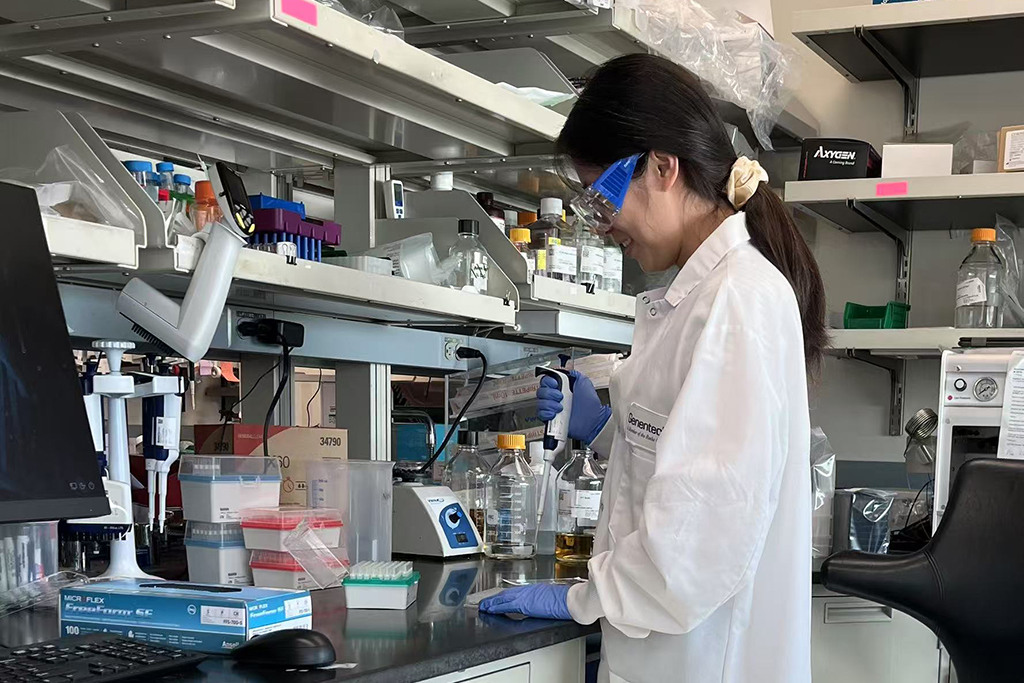
“The internship project is a direction that is totally different from what I’m working on for my PhD,” said Zhao, who works with the Tang Research Group. “My PhD work is mainly focusing on the cell-based assay. We already know what target we are working on, and we’re trying to see whether we can get any functional results from our molecule. But at Genentech, we are trying to find a binder of our target, so it’s like one step before my PhD work. That’s helpful because I wanted to learn something different.”
Zhao has also learned the value of connections. Genentech assigned three scientists to mentor her during her internship, and Zhao also sought out coffee chats with other industry scientists working in areas related to her doctoral research.
“Even if the directions are the same, the academia and industry work are very different, so I wanted to learn more about how they approach these projects,” she says.
Regeneron has also given Lu a new perspective.
“I’m learning how to manage a project and work across departments,” he said. “We also have many new mass spectrometer instruments and software here. Some of them were new to me, so it gave me a challenge, but it’s also a very good learning experience.”
Shaping career trajectories
Not every student wants to put their doctoral research on pause for an outside work experience. But for some, an internship or co-op can clarify future career plans.
“This co-op has definitely shaped my long-term plans,” Lu says. “It’s confirmed that I really enjoy applying mass spectrometry to solve problems, and I want to do that in a setting where the science can quickly transfer into real-world impact. I love working in a collaborative and fast-paced environment. I’m very excited by the idea of contributing to therapeutics that can change people’s lives.”
“I have so many new ideas to take back to the lab, and I’m learning so many great skills here that I can use on my thesis to really accelerate my work.”
–Tina Dang
While Lu has decided to pursue an industry career after he finishes his doctoral studies next year, Zhao plans to apply for postdoctoral positions after her graduation in 2026 to gain more experience working in different environments.
Meanwhile, Dang’s experience at Merck has given her a renewed vigor for her research and grant writing.
“Already, I feel refreshed,” she says. “I have so many new ideas to take back to the lab, and I’m learning so many great skills here that I can use on my thesis to really accelerate my work.”
